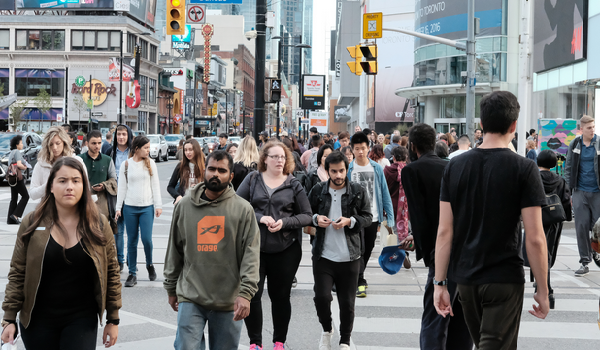Canada considering early release of U.S. targeted goods for retaliatory tariffs
The federal government is weighing early release of a proposed list of American goods that would be targeted by retaliatory Canadian tariffs if Donald Trump goes ahead with a threat to impose a 25-per-cent tax on all products from Canada.
This Canadian list would be published as part of consultations on proposed retaliation but would also be intended to alert American businesses to the extra costs they would bear should the United States start a trade war with Canada, a senior government official said. The Globe and Mail is not naming the source because they were not authorized to discuss the matter publicly.
Mr. Trump, the U.S. president-elect, is set to take office Jan. 20 and has vowed to impose steep tariffs on Canadian goods if the country doesn’t take sufficient action on illegal migration and drug smuggling into American territory from Canada. Ottawa has announced $1.3-billion in new border security spending over six years but Mr. Trump has so far not signalled he’s satisfied.
The arrival of a protectionist U.S. president comes as Canada’s governing Liberal Party is in turmoil. Prime Minister Justin Trudeau announced his resignation as Liberal Leader Monday and said he would remain in power, stickhandling relations with the incoming Trump administration, until a leadership contest picks his successor.
The idea of publishing a retaliatory target list now, before Mr. Trump has unveiled the tariffs, was discussed at a Monday meeting of the Canada-U.S. cabinet committee, the source said. Mr. Trudeau also attended the meeting. No decision was made on a release.
The philosophy behind early publication of proposed targets, the source said, is that the only thing the Trump team will respond to are genuine threats and not to polite entreaties.
In 2018, during the first Trump term, Canada imposed tariffs on $16.6-billion of American imports after the United States slapped tariffs on Canadian steel and aluminum. The retaliatory tariffs, applied to a wide variety of products from whisky to orange juice to pickles, were carefully selected to minimize, where possible, the impact on Canadian consumers but maximize political pain for U.S. decision-makers. In numerous cases, Ottawa chose products that were manufactured in U.S. political districts home to leaders in the U.S. Congress. It would be almost a year before Mr. Trump lifted the tariffs, and reached a deal under which Canada lifted its retaliatory tariffs.
International trade lawyer Lawrence Herman said he favours an early unveiling of the Canadian tariff targets. “I’ve never bought into the idea that a soft approach in the face of Trump’s threats was the best approach. I think the best approach is to show that Canada will, without doubt, apply countermeasures.”
Goldy Hyder, president of the Business Council of Canada, said political tumult in Ottawa means Canada is lacking sorely needed federal leadership on managing the relationship with Mr. Trump’s incoming administration and the threat of tariffs.
“Nature abhors a vacuum,” he said, and instead of unified leadership, surrogates are stepping in with their own proposals, he added.
Ontario Premier Doug Ford last month said he would be willing to stop electricity exports to the United States in retaliation. Kevin O’Leary, a Canadian businessman and reality TV star, told Fox News he met with Mr. Trump on Jan. 4 at his Mar-a-Lago residence to discuss a “North American union.”
Mr. Hyder said the country faces the prospect of 25-per-cent tariffs within weeks and Ottawa needs to spend more effort consulting with Canadian businesses on the strategy it will take.
The Washington Post on Monday published a story saying that Trump aides are exploring tariff plans that would apply to every country but would only target a narrow list of sectors deemed critical to national or economic security instead of a broader list. Mr. Trump later publicly denied this. He said in a social-media post that the story “incorrectly states
The Canadian government has mobilized its diplomatic network to communicate to U.S. decision-makers how U.S. tariffs will hurt their constituents because the costs will be passed on to American consumers.
Daniel Ujczo, an Ohio trade lawyer who represents businesses on both sides of the border, said the next step is for American businesses to start speaking out about the damage that tariffs could do. “It’s actually going to need to be the U.S. business community that steps up to the plate,” he said.
He said the window to reach a resolution with the incoming administration “is closing rapidly” and prudent planning is to expect American tariffs in the first quarter of 2025. He said U.S. companies should be preparing to try and seek exemptions, referred to as “exclusions,” from the Trump tariffs.
Last month, Mr. Trudeau said retaliatory tariffs in past spats with the United States were crucial to getting Americans to abandon protectionist measures. “It wasn’t that Americans were paying more for their steel and aluminum, although that was annoying to some people in the States. It was the fact that we put tariffs on bourbon and Harley-Davidsons and playing cards and Heinz ketchup and cherries and a number of other things that were very carefully targeted … and politically impactful to the President’s party and colleagues,” he said.
“We were able to punch back in a way that was actually felt by Americans.”
This article was first reported by The Globe and Mail













